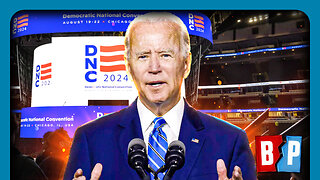Hitler's Olympic Summer Games in Nazi Berlin - 1936 - Full Documentary
The Nazi Olympics Berlin 1936 - The 1936 Berlin Olympic Games were more than just a worldwide sporting event, they were a show of Nazi propaganda, stirring significant conflict. Despite the exclusionary principles of the 1936 Games, countries around the world still agreed to participate.
Key Facts
1
Nazi Germany used the 1936 Olympic Games for propaganda purposes. The Nazis promoted an image of a new, strong, and united Germany while masking the regime’s targeting of Jews and Roma View This Term in the Glossary (Gypsies) as well as Germany’s growing militarism.
2
For the first time in the history of the modern Olympic Games, people in the United States and Europe called for a boycott of the Olympics because of what would later become known as human rights abuses. Although the movement ultimately failed, it set an important precedent for future Olympic boycott campaigns (such as those in 2008 and 2014).
3
Once the boycott movement narrowly failed, Germany had its propaganda coup: the 49 nations who sent teams to the Games legitimized the Hitler regime both in the eyes of the world and of German domestic audiences.
For two weeks in August 1936, Adolf Hitler's Nazi dictatorship camouflaged its racist, militaristic character while hosting the Summer Olympics. Softpedaling its antisemitic agenda and plans for territorial expansion, the regime exploited the Games to bedazzle many foreign spectators and journalists with an image of a peaceful, tolerant Germany.
Having rejected a proposed boycott of the 1936 Olympics, the sponsoring athletic and Olympic organizations of the United States and other western democracies missed the opportunity to take a stand that—some observers at the time claimed—might have given Hitler pause and bolstered international resistance to Nazi tyranny.
With the conclusion of the Games, Germany's expansionist policies and the persecution of Jews and other "enemies of the state" accelerated, culminating in World War II and the Holocaust.
The 1936 Summer Olympic Games
In 1931, the International Olympic Committee awarded the 1936 Summer Olympics to Berlin. The choice signaled Germany's return to the world community after its isolation in the aftermath of defeat in World War I.
Two years later, Nazi Party leader Adolf Hitler became chancellor of Germany and quickly turned the nation's fragile democracy into a one-party dictatorship that persecuted Jews, Roma View This Term in the Glossary (Gypsies), all political opponents, and others. The Nazi claim to control all aspects of German life also extended to sports.
German sports imagery of the 1930s served to promote the myth of “Aryan” racial superiority and physical prowess. In sculpture and in other forms, German artists idealized athletes' well-developed muscle tone and heroic strength and accentuated ostensibly Aryan facial features. Such imagery also reflected the importance the Nazi regime placed on physical fitness, a prerequisite for military service.
Exclusion from German Sports
In April 1933, an "Aryans only" policy was instituted in all German athletic organizations. "Non-Aryans"—Jews or individuals with Jewish parents and Roma (Gypsies)—were systematically excluded from German sports facilities and associations. The German Boxing Association expelled professional light heavyweight champion Erich Seelig in April 1933 because he was Jewish. (Seelig later resumed his boxing career in the United States.) Another Jewish athlete, Daniel Prenn—Germany's top-ranked tennis player—was removed from Germany's Davis Cup Team. Gretel Bergmann, a world-class high jumper, was expelled from her German club in 1933 and excluded from the German Olympic team in 1936.
Jewish athletes barred from German sports clubs flocked to separate Jewish associations, including the Maccabee and Shield groups, and to improvised segregated facilities. But these Jewish sports facilities were not comparable to well-funded German groups. Roma View This Term in the Glossary (Gypsies), including the Sinti boxer Johann Rukelie Trollmann, were also excluded from German sports.
Propaganda
Germany skillfully promoted the Olympics with colorful posters and magazine spreads. Athletic imagery drew a link between Nazi Germany and ancient Greece, symbolizing the Nazi racial myth that a superior German civilization was the rightful heir of an "Aryan" culture of classical antiquity. This vision of classical antiquity emphasized ideal "Aryan" racial types: heroic, blue-eyed blonds with finely chiseled features.
Concerted propaganda efforts continued well after the Olympics with the international release in 1938 of Olympia, the controversial documentary directed by German filmmaker Leni Riefenstahl. Renowned for her earlier propaganda film, Triumph of the Will (1934) depicting Nazi Party rallies at Nuremberg, Riefenstahl was commissioned by the Nazi regime to produce this film about the 1936 Summer Games.
#history #documentary #ww2
-
 49:45
49:45
Knowledge Land
4 months agoFuture War Technology - Armies of Tomorrow
268 -
 1:19:23
1:19:23
Mally_Mouse
6 hours agoLet's Hang - Cosplay Stream!!
33.1K1 -
 1:05:06
1:05:06
Lou Dobbs
12 hours agoLou Dobbs Tonight 5-31-2024
47K29 -
 1:42:57
1:42:57
The Quartering
12 hours agoDonald Trump Conviction BACKFIRES, Massive Funds Raised, Democrats Swap Parties & More
82.4K86 -
 26:11
26:11
Stephen Gardner
10 hours ago🔴HUGE TRUMP WIN! Biden, Hillary, Obama ALL IN BIG TROUBLE NOW!!
85.9K434 -
 9:42
9:42
Breaking Points
1 day agoTERRIFIED Biden Moves DNC Online
70.1K67 -
 1:09:34
1:09:34
Edge of Wonder
10 hours agoGravity Isn’t Real? Fact Checking Terrence Howard
44.9K14 -
 1:37:04
1:37:04
2 MIKES LIVE
12 hours ago2 Mikes Live #73 Open Mike Friday 5-31-24
38.8K6 -
 1:45:34
1:45:34
Total Horse Channel
1 day ago2024 Buckeye Reining Series | Friday Night | 7:30 pm EST
26.6K -
 1:31:09
1:31:09
The Big Mig™
1 day agoProject Defuse, The Covid-19 Bioweapon Op w/ Dr. Richard M. Fleming
43.9K21